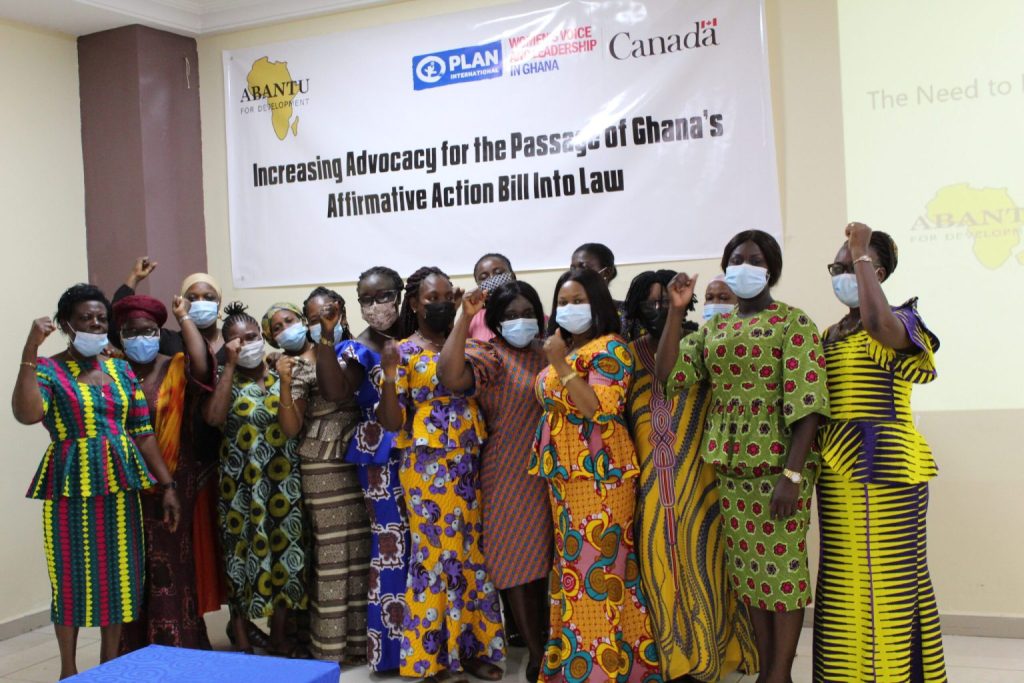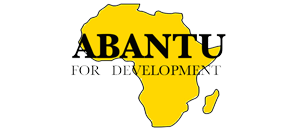
Careers
ABANTU is seeking the serivce of a consultant to implement a Project titled, “The Nature-Based Climate Adaptation in the Guinean Forests of West Africa Project (NbS Project)”.
CONSULTANCY NUMBER: AfD/ROWA/NbS/2025/011
1.0 Introduction
ABANTU for Development is a women’s rights advocacy organistion that works to promote gender equality through influencing national policy-making processes. ABANTU advocates for and influences polices from a gender perspective. It also supports and builds the capacities of women to participate and take up leadership positions and address inequalities and injustices in social relationships. ABANTU is partnering with other organisations in Guinea, Cote D’Ivoire and Ghana to implement a Project titled, “The Nature-Based Climate Adaptation in the Guinean Forests of West Africa Project (NbS Project)”. The project is being implemented in seventeen (17) communities in two (2) landscapes: Wassa Amenfi and Lake Bosomtwe by the World University Service of Canada (EUMC) and the Center for International Studies and Cooperation (CECI), in close collaboration with the International Union for Conservation of Nature (IUCN), the Center for International Forestry Research and the International Center for Research in Agroforestry (CIFOR-ICRAF) and ABANTU for Development.
ABANTU for Development is the Implementing Partner, responsible for mainstreaming gender dimensions into the implementation of the project. As part of its mandate, ABANTU is commissioning an assignment for the development of a project framework for promoting social cohesion and ongoing community dialogue for gender responsive resource management.
2.0 Background of the Project
The Guinean Forest of West Africa has been identified as a “global biodiversity hotspot” due to its high concentrations of endemic species and exceptional habitats. Major climate challenges in the region include rising temperatures and more erratic rainfall, both of which are expected to increase in the future. The direct consequences are a shortening and shifting of the average growing season and a reduction in the productive potential of ecosystems. Furthermore, the ecoregion’s contemporary landscapes have been greatly altered by human activities, in particular slash-and-burn agriculture, lumber extraction and the extension of plantations of key commodities, including cocoa, coffee and more.
This has been compounded by the negative impacts of biodiversity loss, most notably the reduction and fragmentation of habitats and the collapse of key pollinator populations. Migration into these forest areas from northern regions of the Sahel, also severely impacted by climate change, is already creating population pressure on degraded forests and will likely continue in years to come. These challenges impact women and men differently, owing to their different roles and control over forest management and agricultural systems. Consultations indicate that deforestation has increased the burdens on women in gathering firewood, medicine and other forest products, while decreasing women’s income potential and increasing time poverty. Unequal gender roles in forest livelihoods, and the different adaptations available to men and women, are shaped by complex social, cultural and economic relationships and unequal power relations that require careful attention to context and broad inclusion of diverse voices.
The project aims at engaging a wide range of stakeholders to develop local and regional capacity to use evidence, and to engage with women and marginalized groups, to prioritize nature-based solutions (NbS) that are locally relevant to climate change adaptation. The project uses a systemic approach to support climate change adaptation through interventions that plan, pilot and scale up NbS for climate change adaptation that contribute to improved biodiversity and gender equality (GE). The project is based on the general assumption that restoration and reforestation of degraded forests, both on and off farm, will be essential to strengthen the capacities of women and their communities to adapt to climate change challenges and to protect and restore biodiversity in this critical global hotspot.
The project supports a more inclusive and gender responsive planning process, the restoration of degraded forests and support an increase in investments for NbS and biodiversity with a view to promoting women’s rights and gender equality.
The overall objective of the project is to strengthen local and regional capacities for nature-based climate change adaptation solutions and to foster women’s transformational leadership in this area. More specifically, the expected intermediate results of the project are:
1. Improved women’s leadership and gender transformative evidence-based and nature-based climate change adaptation planning processes in the Guinean forests of the target zone;
2. Increased and more gender responsive restoration of degraded forests and key habitats with benefits for biodiversity by rural communities in the Guinean forests of the target zone;
3. Increased and gender responsive investments in nature-based solutions for CCA with income potential for women and biodiversity benefits in the Guinean forests of the target zone.
3.0 Objective of the Assignment
The general objective of the assignment is to develop the project framework for promoting social cohesion and ongoing community dialogue for gender responsive resource management in Ghana, Guinea and Cote D’Ivoire. This framework will serve as the basis for engaging with the project communities for improving governance in natural resource management, to enhance its inclusivity and gender-responsiveness in the three countries. Specifically, the project framework will be used for:
• Training and capacity building of the communities, to reduce the risk of natural resource-related conflicts, and improve social cohesion, as well as the effective inclusion of women and other vulnerable groups, through community-led natural resource management.
• Traditional conflict prevention and management mechanisms and strengthening community-based adaptation to reduce vulnerability to climatic and social shocks
•Transforming negative gender social norms to ensure women’s effective participation and representation in strategic decision-making spaces related to resource management.
4.0 Scope of Assignment
The consultant under this assignment is responsible for the following tasks:
• Participate in an inception meeting with the project team for clarity and alignment on the need for an integrated approach on social cohesion and Free PIC.
• Undertake a field visit to the two (2) landscapes to understand the context and engage with key stakeholders on existing social cohesion and resource management systems.
• Engage with implementing partners in Guinea (CECI) and Cote d’Ivoire (WUSC) to collect data and integrate their individual country perspectives into the document.
• Conduct an analysis of key stakeholders, identifying their needs, concerns, levels of influence within the community, in relation to issues of social cohesion and resource management in the three countries
• Conduct an analysis of existing resource management systems and ongoing community dialogues to ascertain their strengths and gaps, with specific reference to the gendered dimensions from the three countries
• Undertake desk research on gender-responsive existing social cohesion and resource management systems in Ghana, Guinea and Cote D’Ivoire with support from Implementing Partners in these countries.
• Based on the analysis and desk work, develop the project framework for promoting social cohesion and ongoing community dialogue for gender responsive resource management
• Recommend effective methodologies for training and capacity building of community members on the project framework development.
• Recommend a framework for monitoring and evaluating the effectiveness of the gender responsive social cohesion and resource management framework.
• Share draft framework to ABANTU for inputs.
• Participate in a validation meeting for further inputs from other implementing partners.
• Provide a final comprehensive framework, incorporating inputs from ABANTU and other Implementing partners.
5.0 Qualifications
• Proven experience in the development of gender-responsive tools, including the development of knowledge materials for promoting social cohesion and gender responsive resource management.
• Expertise in utilizing participatory approaches for inclusive stakeholder involvement.
• Familiarity with gender mainstreaming and social cohesion.
• Strong writing, analytical and communication skills.
• Possess at least a masters’ degree in gender, community development or relevant field.
6.0 Submission
Interested individuals or groups should submit a detailed narrative and financial proposal detailing relevant experience, proposed methodology, work plan and budget. The budget must include all anticipated expenses, including those of the field work. In addition, applicants must include their CVs or the CV of the lead consultant where it is a team. Selected applicants will be contacted for further discussion. Proposals should be sent via email to abanturowa@yahoo.com with the subject, “Social Cohesion” or hard copies to the address: HNo. A30, Belfort, Spintex Road, Accra, Ghana. The deadline for submission of applications is Friday, January 24, 2025.
Find the terms of reference here
